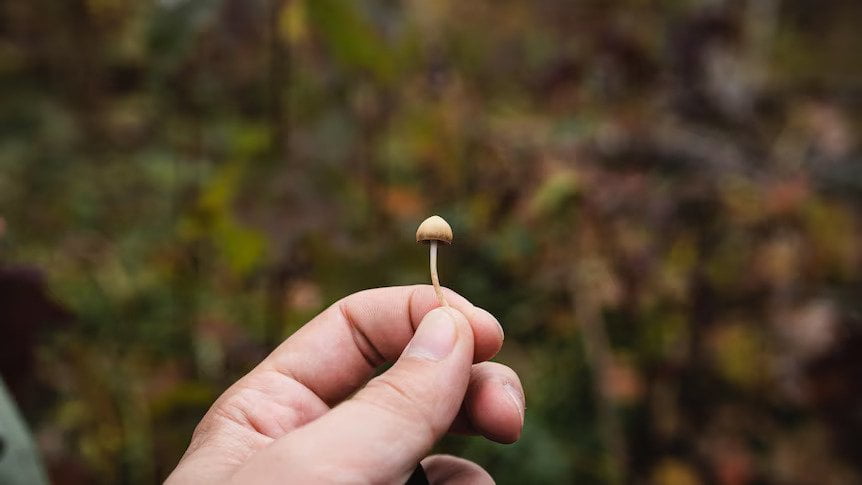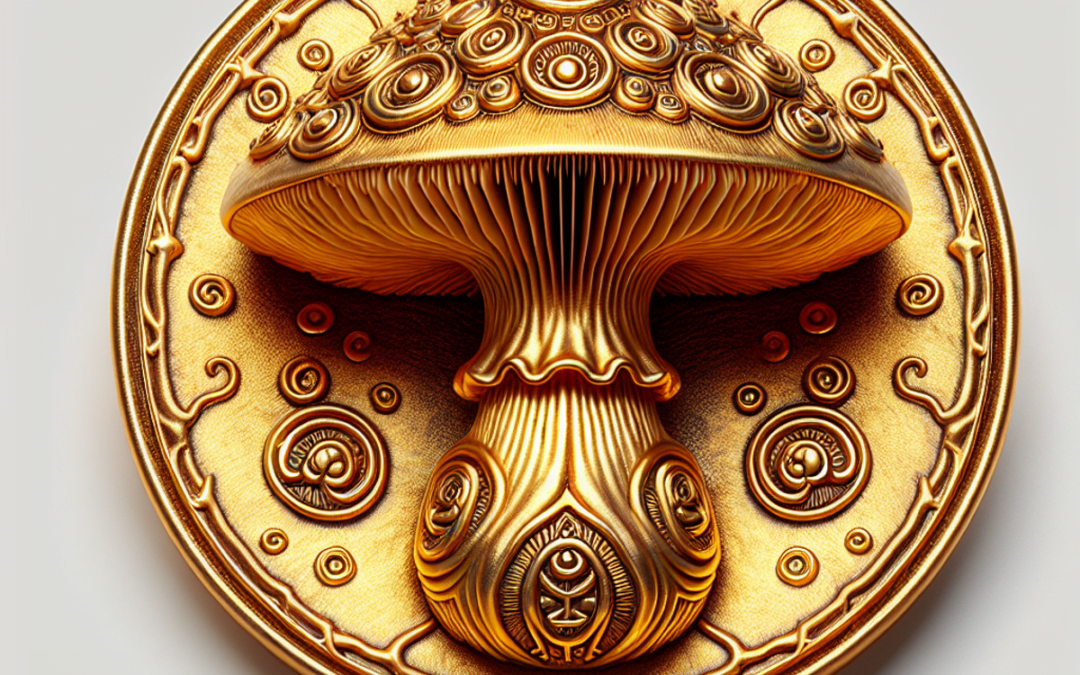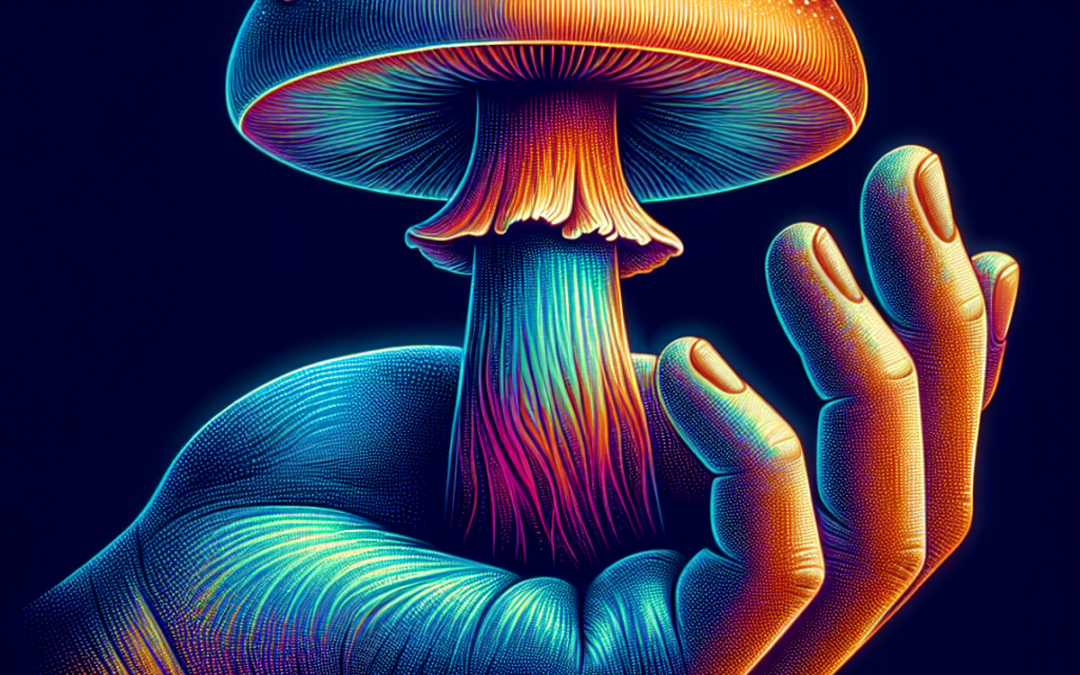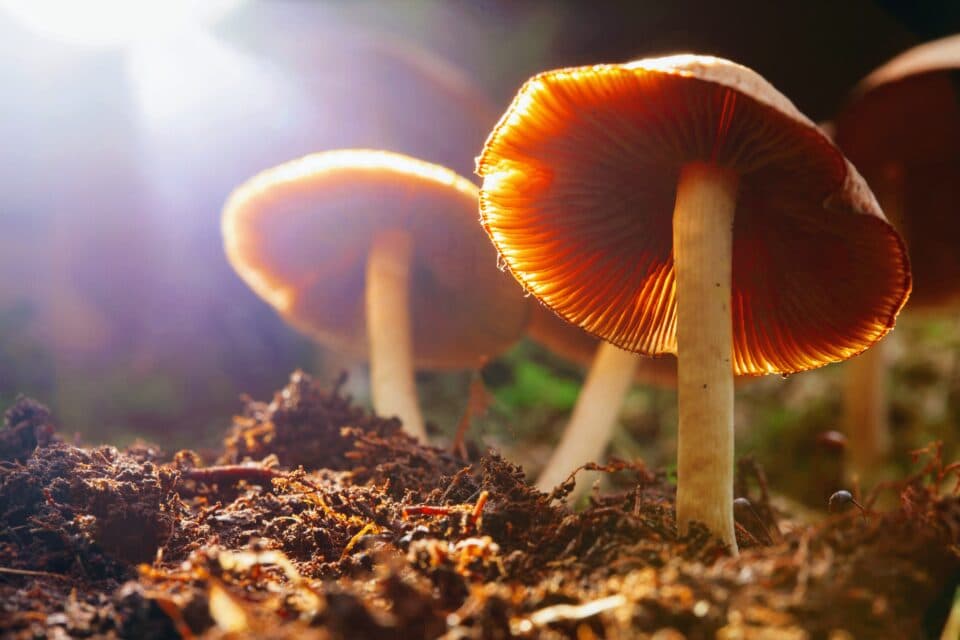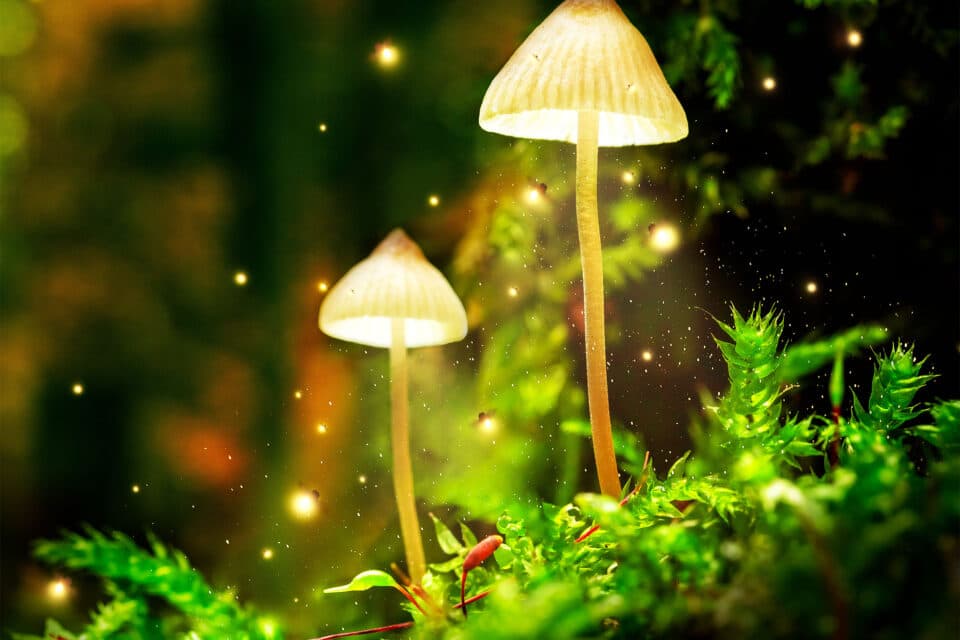The first legally grown batch of pharmaceutical-grade mushroom-derived psilocybin will soon be planted in south-west Western Australia after an alternative-drug company received ethics approval to carry out the state’s first clinical trial using psilocybin to treat depression.
Key points:
- WA’s first clinical trial on medicinal mushrooms to begin mid 2023
- The company hosting the trial is the first in Australia to receive license to grow magic mushrooms
- Psychedelic treatments may be a last resort for people with treatment resistant mental illnesses
- Psilocybin is the active, or psychedelic, ingredient in what is commonly known as magic mushrooms.
UWA Professor Sean Hood is the principle investigator of this trial, which will be conducted at Fiona Stanley Hospital in Perth and involve about 60 participants.
Professor Hood said each patient would receive two 25-milligram doses of the drug a month apart, followed by an intensive regime of psychotherapy.
“It’s given in conjunction with some psychological therapy and also involves the family member or their loved one,” he said.
“Hopefully the results will show that we’re able to do this in a way that has a benefit for patients that involves their family and loved ones, in a way that helps integrate the benefits of this exposure to this medicine most most usefully.
“Part of my reason for doing this trial is to give us a track record here in WA of using this medication in a medical setting, in a safe way so that our pharmacies and our hospitals are prepared to enable patients to get access to these substances, rather than have to use less legal means.”
Sourcing the mushrooms
The pharmaceutical-grade psilocybin for the initial trial will be imported from Canada, but the company behind the research Reset Mind Sciences hopes to soon be able to produce and cultivate the drug on home soil.
Chief executive Shaun Duffy said the company would begin growing magic mushrooms in the south-west of the state within weeks.
The company has been working with the CSIRO to develop a state-of-the-art grow room, and once complete, it will be the first in Australia to legally grow the drug.
“We have built a special-purpose grow room for the mushrooms, which will be housed at an undisclosed location, but we have all the licensing in place to do that,” he said.
“Once we have started growing mushrooms, it’s a separate piece of work to start then extracting the psychoactive ingredient psilocybin and producing that to a pharmaceutical grade to meet the TGA standards.”
Reset Mind Sciences is a wholly owned subsidiary of Little Green Pharma, the alternative medicine company that first brought medicinal cannabis to Australia.
Last resort for some
To be eligible for the medical trial, participants must first be diagnosed with treatment-resistant depression, a term used to describe patients who have had at least two attempts of a validated antidepressant therapy.
If you or anyone you know needs help:
- Lifeline on 13 11 14
- Kids Helpline on 1800 551 800
- Beyond Blue on 1300 224 636
- Suicide Call Back Service on 1300 659 467
- Headspace on 1800 650 890
- ReachOut at au.reachout.com
- MensLine Australia on 1300 789 978
- Care Leavers Australasia Network (CLAN) on 1800 008 774
- Head to Health at headtohealth.gov.au
- This can be either a medication therapy, a clinical psychological therapy, or both.
Enlighten Mental Health co-founder and chief executive Eternity Hausen said the trial was a huge step for those wanting to legally obtain the drug to treat depression or PTSD after other recognised treatments had failed.
“What we’re finding is that people are taking their mental health into their own hands, and they are trying psychedelics in a recreational setting for their own mental health,” she said.
“If these substances are proven to be effective in a clinical trial, a wider group of people may be offered these substances in the future.
“There’s so many people out there who have treatment-resistant depression or PTSD and they may benefit from having access to these substances.”
Source: ‘Magic mushroom’ trial in WA could be the key to treating depression

